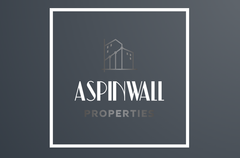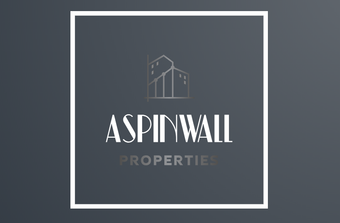October 13, 2023
It’s all too easy to fall into the trap of thinking of your landlord as an adversary, someone whose interests clash with your own. But that faulty attitude can cost you time, money, and stress. In reality, your landlord is a supplier, someone who has a business relationship with you. It’s true that your interests and theirs aren’t perfectly aligned. They want to charge as much as possible for their service, and you want to pay as little as possible, as in any supplier-client relationship. But suppliers and clients don’t have to have an antagonistic relationship – quite the opposite. The better your relationship with your landlord or property manager, the easier it is to negotiate and secure favorable long-term contracts with them. When it comes time to renew the lease, a great tenant knows the landlord won’t drop them suddenly and may even be willing to renegotiate the terms. A strong rental history can even help you lower your rent rates without moving and obtain more perks on your lease renewal. Try these 12 tips to become a sought-after tenant and secure lower rents, better lease terms, more housing security, and strong rental references when it comes time to move. How to Be a Great Tenant 1. Read Your Lease It sounds so simple, yet few tenants actually do it: Read your lease cover to cover before you sign. Signing a lease agreement isn’t like checking an “I read the terms and conditions, blah blah blah” box on a website. Your lease contains rules affecting your day-to-day life, such as how many people can live in your home, whether pets are allowed, and how many nights a month you can have guests sleep over. You need to know exactly what rules it contains. Who’s responsible for replacing the air filter? For shoveling snow from the sidewalk? For mowing the lawn? Your lease should spell out each party’s responsibilities in detail. Reading the lease will also help you catch potential problems before they arise. Most good landlords will work with you on the terms of the lease if you have questions or concerns. If you know you have a special circumstance, such as a family member or friend who visits regularly, tell the landlord about it ahead of time. If the landlord makes any verbal agreement with you, such as promising to provide lawn care, make sure they put it in writing in the lease. Then, ask for a copy of the lease for yourself as soon as you sign. Having a well-rounded lease will help you avoid any tenant’s rights issues after you’ve signed and committed. Lastly, make sure the lease includes a move-in/move-out condition form. You and the landlord or property manager should walk through the property together before you move in and document the exact condition, with photographs. After you move out, repeat the process, referencing the original form and photos, so you have documentation of exactly what damage was pre-existing. It can help you make sure you get as much of your security deposit back as possible. 2. Don’t Break the Lease Most renters think of breaking a lease in terms of major violations like not paying the rent, cutting out early, or subletting without permission. But “smaller” lease terms count too. It’s yet another reason why you need to know what’s written into that legally binding lease contract you signed. While a landlord can technically evict a tenant for breaking any term of a lease, most landlords are reluctant to evict because it’s time-consuming and expensive. Still, the better you stick to your lease, the better chance you have of existing peacefully with your landlord. If there’s a lease term you want modified – say, the lease prohibits subletting, but you want to rent out a room on Airbnb periodically – pick up the phone and call your landlord. Talk it over with them, and remember that you have a business relationship and everything is negotiable. If the landlord’s initial response is “We don’t allow subletting to short-term guests because there’s a greater risk of damage to the property,” follow up with “I understand completely. What kind of additional security deposit would make you more comfortable with the added risk of damage?” Most landlords are reasonable. They want to minimize wear and tear and the risk of damage to their properties. Negotiate with them, acknowledge and address their fears, and find a path forward. 3. Pay Your Rent on Time Nothing makes a landlord happier than a renter who pays on time every month. Before you sign the lease, make sure you can actually afford the rent – not just in a “normal” month, but also in your tougher months when you have hefty annual insurance payments due, huge holiday shopping bills, or unexpected medical bills. Use a rent affordability calculator to run the numbers. Make sure you have the check in the mailbox a few days before it’s due to avoid any mail or bank holdups. You might even score some brownie points if you pay a few days early. Landlords can increasingly report rent payments to the credit bureaus, hurting your credit score if you miss a payment. No one is immune from financial hardship, so if you know you might have to pay late one month, let your landlord know as soon as possible. If you’ve previously paid on time, then you’ve established a track record of reliability and trustworthiness, so your landlord knows they can trust you to pay them. That extra flexibility when you need it makes one more reason to build a good relationship with your landlord from the beginning. Lastly, remember that you have plenty of options for help paying the rent. You’re less alone than you might think. 4. Treat Your Rental Like You Own It Taking good care of your rental paves the way for friendly relations and more flexibility from your landlord. Landlords are often amenable to property modifications and updates requested by tenants if they improve the value of the property or will extend your tenure significantly. Landlords who know you treat the property well are far more likely to approve these requests. You can even offer to do the work yourself and make home improvements without breaking your lease. Treating the property well also ensures that you get your deposit back when it comes time to move. While normal wear and tear is to be expected in rental units, avoid causing any significant damage to the property. The line between “normal wear and tear” and “damage” is a blurry one, but as a rule, damage is caused by a single incident (such as a red wine spill on the carpet), while normal wear and tear is gradual (such as a slight discoloration on the carpet where there’s the most foot traffic). Expect the cost of damage to come out of your security deposit – and to be a surefire recipe to distress your landlord. And if the damage you cause is higher than your security deposit, you’re legally liable for it. 5. Keep Your Unit Clean Nothing raises landlords’ hackles faster than walking into a rental property to find it filthy. Most rental properties are worth hundreds of thousands of dollars at least, so to find such a valuable asset treated poorly is cause for alarm. Follow a simple weekly cleaning checklist to keep your home tidy and your landlord happy. Do a more thorough spring cleaning once a year to get rid of the grime and clutter that inevitably builds up over time. If you have pets, take extra pains to keep your unit clean, especially when you’re expecting the landlord to stop by. Pet owners often become desensitized to pet odors, but your landlord will notice them. If your landlord finds your unit in clean condition, they will trust you more. And more trust equals more negotiation power when the lease renewal rolls around. Pro tip: If you’d prefer to hire a cleaning company and the expense fits into your budget, you can find quality housekeepers through Handy.com. 6. Get to Know Your Neighbors Meeting prospective neighbors is a great way to learn more about both the neighborhood and the landlord when finding a new apartment to rent. After you move in, knowing the neighbors puts an extra buffer between you and the landlord. For example, if you or your dog proves exceptionally loud one day, a neighbor who knows and likes you will politely ask you to keep it down. A neighbor who doesn’t know or like you is more likely to complain to the landlord. Despite your best efforts, sooner or later, everyone does something to upset the neighbors. Small problems like this can seem like a much bigger deal by the time they get escalated to the landlord. Avoid this altogether and give your neighbors your cell phone number to contact you instead. Knowing your neighbors also lets you watch out for each other. If you have to leave town for an extended time, your neighbors are likely to keep a better eye on your unit if they know you. Friendly neighbors also do small favors for each other, such as signing for UPS packages. 7. Let the Landlord Know About Maintenance Problems Immediately Yes, landlords hate getting bad news about expensive repairs. Who wouldn’t? But experienced landlords budget for them and know they’re a reality of owning real estate. They also know that regular home maintenance helps keep any property in better condition and value. Many property problems get worse if left unchecked. A small roof leak can quickly worsen, causing damage to the drywall and flooring and even creating a mold problem. Tenants are often the bearers of bad news to their landlords. It’s part of the relationship, and good lease agreements list it as a legal responsibility of the tenant to inform the landlord immediately of any maintenance issues. 8. Don’t Hassle the Landlord About Tiny Items A roof leak? The landlord needs to know right now. A burnt-out lightbulb? Go to the store and buy a bulb. I hear landlords complain all the time about tenants who constantly call them over the smallest issues. They call because the smoke detector is out of batteries, or because they clogged the toilet and didn’t even try to plunge it. Adults know how to change a lightbulb or batteries and how to use a plunger. You want your landlord to treat you like a responsible adult, so don’t give them cause to believe you’re not one. 9. Put Felt Pads on All Furniture Feet Flooring is expensive, and it scratches and tears easily. One of the things that homeowners remember to do but tenants often don’t is protecting the floors from their furniture. For the cost of a $3.99 pack of adhesive felt pads and five minutes of sticking them on the bottom of furniture feet, you can protect your unit’s flooring from scratches – scratches which could otherwise come out of your security deposit. 10. Buy Renters Insurance Many lease agreements require tenants to buy renters insurance. Even if your landlord doesn’t require it, they’ll sleep easier at night knowing you have your own coverage. Renters insurance gives you an easier option than suing the landlord to recover money for damaged or stolen items. If a roof leak ruins your television, and you have renters insurance, you can file an insurance claim rather than contemplating small claims court. Besides, all tenants should have renters insurance, regardless of how the landlord feels about it. Read up on how much renters insurance you need and why it’s so important to have coverage. If you need help finding a policy that’s best for you, check out PolicyGenius. 11. Get Permission Before Bringing in a New Pet Landlords don’t like pets because they cause greater wear and tear and add a greater risk of damage. It’s not personal, and it’s not because they hate animals. If your lease prohibits pets, call your landlord to negotiate an exception, just as you would with any other lease clause change. If your landlord still resists, you can offer to pay an extra security deposit, a small monthly pet rent, or a non-refundable one-time pet fee. Get permission in writing in the form of a lease addendum so there can be no misunderstanding later about the pet’s right to live in the property. If your landlord absolutely, positively will not budge, and you’re determined to adopt a dog or other pet, then when your lease comes up for renewal, give your landlord notice that you’re not renewing and find a pet-friendly rental property for your next home. What you should never do is sneak a pet into your rental unit. Besides the fact that it’s dishonest, your landlord will find out sooner or later. When they discover you broke your lease’s terms, they’re far more likely to file for eviction, fail to renew your lease, or raise your rent dramatically when it comes time for renewal. 12. Leave the Property in the Same State in Which You Found It As a landlord myself, it makes me cynical about humankind when I walk into a newly vacant rental unit and find the tenants left it dirty. I know it wasn’t dirty when they moved in, but some renters simply don’t respect other people’s time or property enough to leave their unit in the same condition in which they found it. These renters often find the cost of cleaning the apartment deducted from their security deposit. And guess how the landlord will respond when future landlords call to ask about the tenant’s housing history? Be respectful and clean the property after you’ve moved your belongings out. Hire a maid service through Handy.com if you don’t feel like doing it yourself. Your landlord will notice, and they’ll be far more likely to overlook a small hole in the wall when they decide how much of your security deposit to refund. Final Word Your landlord is a service provider, and you’re a client. You have a business relationship. Nurture that business relationship by being respectful – respectful of the lease agreement you signed, respectful of the property you’re leasing, and by speaking with the respect of one business party to another. In return, the landlord will treat you with respect and aim to keep you as a satisfied, ongoing client. Landlords are far more willing to cut some slack for tenants who have a track record of paying on time and treating the rental property well. And when it comes time to renew the lease, they make renewal and rent hike decisions based on that same track record. What are your best tips for being a courteous and conscientious tenant?








